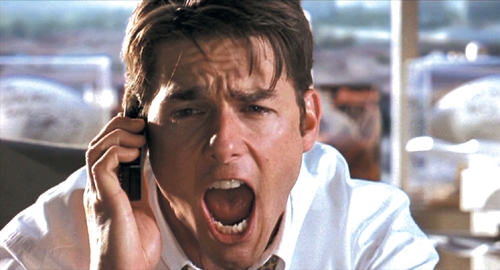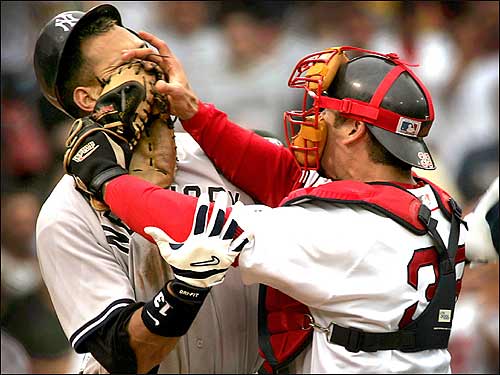
Listen, I'm going to try to be diplomatic here, as diplomatic as my Red Sox blood will allow. I avoided the knee-jerk acerbic post last night and waded through six hours of restive slumber to write this. I'm trying, folks.
First, the Yankees deserve congratulations: They won the World Series. And regardless of the money you spend in assembling an All-Star team, the said team needs to perform in order to be champions. Since the All-Star Break, the Yankees have been one of the most dominant teams in MLB history. They deserve props. Definitely.
But, really, is any of this shocking? Has there been any drama leading up to this? Seriously, who didn't expect them to win after they went on their $423.5 million dollar spending last off-season?
I have no interest in getting Nietzschean here, but in order to be successful, you can argue, you do whatever it takes, whatever is in your means, to be successful; otherwise, you need to embrace failure. The world's biggest creep, John Henry showed us this lesson when he failed to pull the trigger on Texiera, failing to pony up what turned out to be a nominal bucket of cash in respect to overall spending. And while the Sox cut their payroll, ticket prices continued to sky-rocket in one of the worst economies since The Great Depression. One of the few past times that can relieve Boston diehards from their dire financial woes is now unaffordable. Talk about a kick in the nuts.
Shame on you, Red Sox.
But the real disturbing thing about the Yankees winning the World Series is the message it affirms: money does, in the end, will prevail. We can tell our kids tales about prodigal sons and Robin Hood's and Jesus, but in the end, the person with the most cash wins. This is what we learn from the New York Yankees. And that's not meant to be bitter or dramatic; it's a fact.
While I'm sure I'm not the only one flashing these stats today, take a gander at the team salaries for 2009:
1. Yankees: $201,449, 189
2. Mets: $149,373, 987
3. Cubs: $134,809,000
4. Red Sox: $121,745,999
Now, Yankees fans will argue: The Mets and The Cubs didn't make the playoffs, and the Sox were eliminated in the first round. Very true. See the second paragraph of this blog. But here's the thing: the disparity between the Yankees and the Mets is over $50 million bucks! This is more than the Padres, Pirates, and Marlins pay out for their entire team! And Yankee fans will say: If the Sox spent the cash and won The World Series, you wouldn't be complaining. This is all sour grapes.
I don't know. Something about this disturbs me on an ethical level. And, listen, I'm by no means a man of unshakable ethics, but this just feels wrong. Maybe this is knee-jerk Sox fan indignation. Maybe it is sour grapes. But there's more to it than that. This is what's wrong with the bullshit we feed our kids. We tell them that money can't buy happiness. Really? Money looked pretty fucking happy on the pitcher's mound last night. And will the Sox go out and spend a butt-load in the off-season to keep up with Jones' and keep the affluent population of Boston paying $300 a ticket for box seats at a Yankee game in Fenway? You bet your ass they will. Because in the end, it's all about the bottom line. Don't kid yourself. It is.
Maybe that's what we should be teaching our kids: it's all about the bottom line. There are no Jerry Maguire endings in the real world, kids. It doesn't happen. So congratulations, New York. You bought this fair and square.


 A couple of quick things before I take off for the weekend to read with some of my dearest friends, Becky and Cracker. Right now, Dan
A couple of quick things before I take off for the weekend to read with some of my dearest friends, Becky and Cracker. Right now, Dan 

